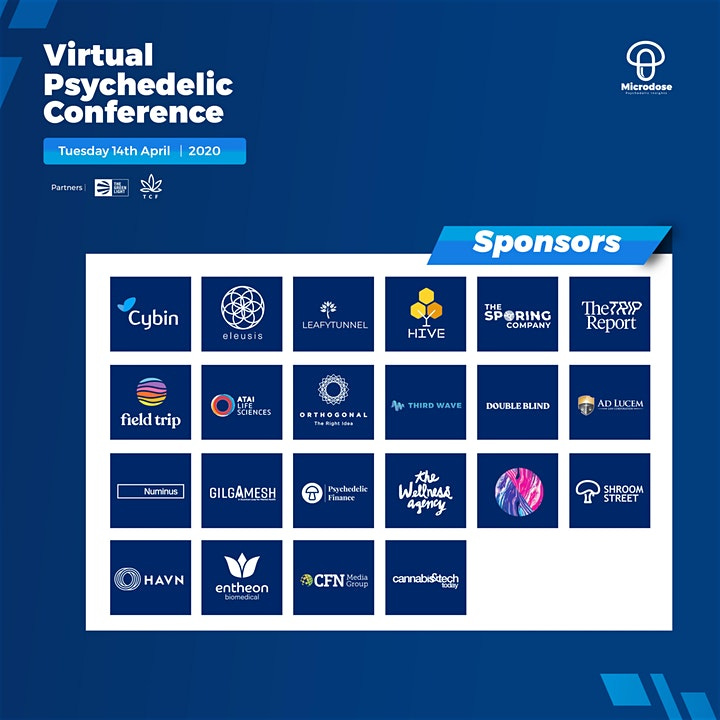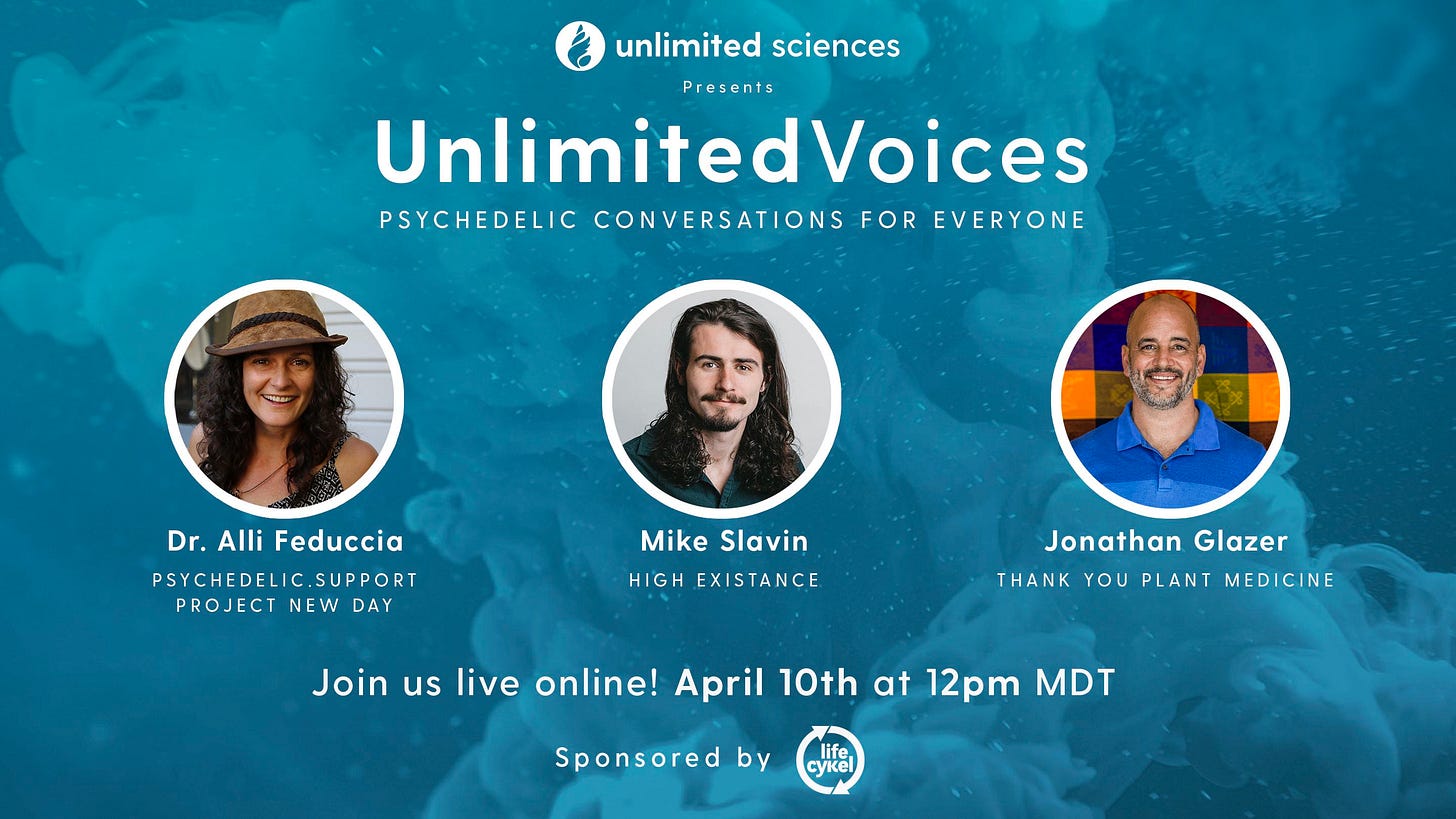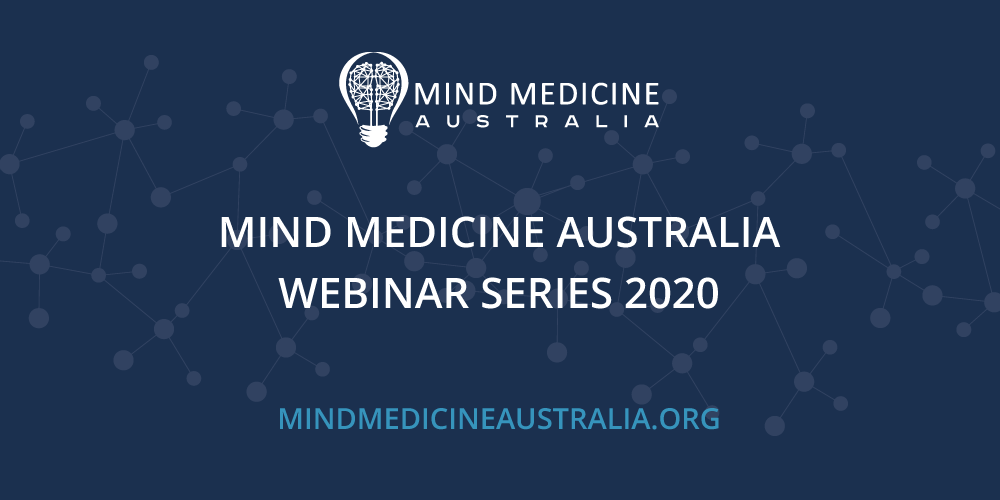The Last Mile Problem Part 2: The Innovation and Delivery Divide
In this turbulent time, it feels like The Trip Report is becoming a directory of webinars and digital events in the psychedelic space.
There is the Virtual Psychedelic Conference, the Liberty Psychedelic Conference, MAPS Webinar Series, Unlimited Science's Webinar series, Mind Medicine Australia, PsyTech, Psychedelic Seminars, the list goes on. Forgive me if I failed to include your project.
This edition of The Trip Report includes upcoming webinars and digital events and a look at changes the FDA has implemented in the face of COVID-19 and if they could be used to accelerate psychedelic approvals.
But before we get into upcoming "pants optional" educational and community events, I want to present an idea that I learned about this week that feels important for the psychedelic space to consider.
The Innovation and Delivery Divide in Medicine
In Monday's Pro dispatch, I published a rough (very rough) first draft of this idea. Below is a less rough (hopefully) second draft.
In December, I wrote about The Last Mile Problem for Psychedelic Medicine. Here is an excerpt, a quote from economist Tyler Cowen that captures the idea of stagnation in healthcare outcomes despite incredible technological innovation:
There's some kind of last-mile problem. You can turn to the newspapers and read all kinds of fantastic stories--new research, new ideas, new tools--but when the rubber hits the road, people living longer, we're spending more and more and more for exactly the same returns. So if that trend continues…the question becomes, you know, where does all the progress go?
The innovation and delivery divide is a significant piece to The Last Mile puzzle. To be sure, I have nothing prescriptive to offer. This is simply an idea that feels important for the psychedelic space to consider and think about.
The Last Mile Problem Part 2: The Innovation and Delivery Divide
I stumbled upon this idea of innovation and delivery divide in The Long Run Podcast by Luke Timmerman.
Timmerman is a journalist that covers biotech, life sciences, and the pharmaceutical industry.
In this episode, he was speaking with Alexis Borisy and Melanie Nallicheri, founders of EQrx, a drug development company that is seeking to disrupt the pharmaceutical development and bring down drug costs.
Borisy pointed out that people in biotech and life sciences (innovation) and the people that work in health systems and delivery (delivery) are siloed from each other.
They don't know each other, and they don't interact; therefore, they don't work together to improve the overall system.
Borisy: “I’ve been thinking broadly about what we have been able to do, how our technology has advanced, how our skills and capability have advanced in the hardcore domain of science-based, clinical-based, medical innovation. Therapeutics, diagnostics, medical devices, the hardcore, regulated, deep science life sciences and innovation…
One of the things I’ve realized is that those of us in that world (innovation/life sciences), we’re not thinking [about] and paying attention and not interacting with the world of our health systems, the payers, the employer groups, the governments who pay for innovations, the provider groups. Those worlds, the worlds of medical innovation and the systems that deliver those innovations to make life better don’t intersect…
They don’t intersect down to the soft networks of people, the people from these worlds dont know each other, they don’t interact with each other and they dont even think about each other so much.”
Timmerman: “The members of the innovation community tend to operate on this assumption that if we just do something awesome with innovation, we come up with a new drug that will help patients, all that stuff will work itself out…”
Borisy: “You’re right, in innovation we say “if we just make it, and if it is incredible then it will all be fine.” But we actually have to make tradeoffs in society… in most industries when you talk about entrepreneurs and innovators, they’re ultimately trying to say ‘how do we utterly delight the customers?”… and the question is “how do we bring great innovation that will help us live longer, healthier lives in the context that delights our society?””
There are many issues in the current healthcare system and even more opinions on who's to blame and how to fix them. Too often, discourse bumbles into ideological point-scoring, and stakeholders entrench themselves even further into their positions.
I want to encourage the psychedelic community to consider that a primary problem in the current healthcare system is that innovation has become estranged from delivery.
But this doesn't have to be the case in psychedelic medicine.
In fact, psychedelic medicine can prove to be an example of how innovation and delivery can work together to achieve better outcomes.
People Hate Big Pharma
People hate the pharmaceutical industry more than they hate the cigarette companies, more than they hate the senate.
How did this happen?
How is it that a sector that produces incredible technology, life-saving medicine, and mind-blowing discoveries has become the Hanibal Lector of society?
People hate big pharma (innovation) because (among other reasons) they have abandoned delivery.
Innovation involves the objective and quantifiable hard sciences—a domain where things can be measured and therefore improved and scaled.
Delivery, on the other hand, involves humans and the messy, convoluted, and incomprehensible systems that humans create. A domain where often what can be measured does not matter, and what matters cannot be measured.
It should be obvious, and with complete respect for innovation, delivery is the harder problem.
For those of us who want to see psychedelic medicine thrive, we should think about this separation of innovation and delivery for two reasons:
We don't want psychedelic medicine to have the image problem and the actual problems of big pharma (high costs, high risk, winner take all, etc.)
Psychedelic innovation and delivery are already inherently coupled. Psychedelic medicine will be unique because the drug is not delivered at a pharmacy but in conjunction with psychotherapy in the appropriate set and setting.
This second aspect should give us hope that the innovation people and delivery people in psychedelics can maintain close working relationships. Innovation people need to be in touch with how much treatments cost, how payers are reimbursing, therapist training, feedback from therapists, and so much more, I am sure.
If we want psychedelics to fulfill their potential, we need to hitch the innovation wagon to delivery.
Perhaps the psychedelic sector can become a model for the rest of healthcare in this regard.
What if the FDA Approves Drugs Faster?
What do we want?
Psychedelics!
When do we want them?
Now!
Extraordinary times call for extraordinary measures.
Dr. Morgan Campbell published an op-ed piece in the Sacramento Bee advocating for expedited approval of MDMA and Psilocybin to address the psychological fallout from COVID-19.
“To address the inevitable spike of mental illnesses, we must hasten the approval of new evidence-based medications for depression and PTSD. These include the psychedelic compounds MDMA and psilocybin.
Twenty years of trials for psilocybin, and 10 years for MDMA, show that they outperform currently approved medications for depression and PTSD…
Because of how many years MDMA and psilocybin have been tested for safety and efficacy, there is better quality evidence for these psychedelics than the evidence that will be required to approve COVID-19 antivirals.
Can this actually happen?
The Transportation Security Administration (TSA) is an example of a federal response to an extreme event (9/11) that became permanent.
The FDA says they've created the Coronavirus Treatment Acceleration Program (CTAP) to expedite screening and approval for potential COVID-19 treatments:
“The FDA is announcing a new, comprehensive public-private approach to bring coronavirus treatments to market as fast as possible,” said HHS Secretary Alex Azar. “As part of this new program, the FDA is cutting red tape, redeploying staff and working day and night to review requests from companies, scientists and doctors who are working toward therapies.”
This is in response to a deadly virus rapidly spreading through society. Would such efforts be made for the psychological/emotional fallout?
Could some of the processes remain in place?
“To support these goals, the FDA has, among other things, redeployed medical and regulatory staff to serve on review teams dedicated to COVID-19 therapies, streamlined processes, and operations for developers and scientists to send inquiries and requests and provided resources to health care providers and researchers to help them submit emergency requests to use investigational products.”
Could this sprint that the FDA has been forced to take up fundamentally change the drug approval process?
Could the second-order consequences of COVID-19, namely the expected mental and emotional health crisis, create an opportunity to see psychedelic based medicine sooner than expected?
I bet the answer will be "no."
This is an all hands on deck scenario, and all resources are going to COVID-19. I imagine the cost of accelerating these treatments means a delay for everything else.
Unfortunately, a likely scenario is a further delay in MDMA's approval. In a recent bulletin from MAPS, Rick Doblin indicated that preliminary data from the Phase III trial would be announced in April. This data is meant to serve as an indication of a timeline for opening up the Expanded Access Program, a process that heavily involves the FDA.
VPC Now Two Days & More Speakers

***The Trip Report is a sponsor of the Virtual Psychedelic Conference, Trip Report readers get 20% off tickets with discount code TRIPREPORT***
Three Additions to the lineup that I am pumped to see:
Deborah Mash founder of DemeRx
Christopher Timmerman of Imperial College London
Matthew Johnson of Johns Hopkins
Education, Community & Webinars
Webinars, Zoom, Facetime we are in a brave new world, If you're keen for some psychedelic education while you get your Recommended Daily Allowance of digital-human-connection here are some excellent options.
Unlimited Sciences Webinar: Building Community Through Psychedelics

“The first series of Unlimited Voices will focus on ways that we can continue to build community and integrate lessons from psychedelics, in light of the challenges posed by the current pandemic.
To offer expert insights on this subject, we’re joined by Co-Founder of Thank You Plant Medicine, Jonathan Glazer, Co-Founder and Director of Psychedelic.Support and Project New Day, Dr. Alli Feduccia, and Executive Director of High Existence, Mike Slavin.”
Psychedelic Liberty and Times of Crisis

“Join members of the Chacruna leadership team for a free webinar on Wednesday, April 8th at 12pm. We will discuss the role of psychedelics and plant medicines in helping make sense of the current global pandemic, and explore what the future social, political and cultural systems might look like as we attempt to integrate these powerful tools into a rapidly-changing and uncertain future. This event will serve as a preview for some of the content that will be explored on April 25th and 26th at the Psychedelic Liberty Summit, where dozens of thought leaders and visionaries from around the world will come together to discuss the future of psychedelic practices, including decriminalization, legalization, medicalization, commodification and access.”
Mind Medicine Australia Webinar Series

“This webinar will provide an opportunity to engage in a discussion about psychedelic-assisted psychotherapies for mental illness broadly, and what Mind Medicine Australia is doing here in Australia to make these medicines available. This webinar will focus on the current mental health crisis that our country is facing, the role that Mind Medicine Australia will play in innovation in treatments, the benefits of psychedelic-assisted medicines and their clinical efficacy. We will also present an overview of the Mind Medicine Australia 4 key pillars and the strategy we will employ to introduce these medicines into the mainstream clinical treatment protocol for those suffering from chronic mental health conditions.”
MAPS Psychedelic Science Webinar Series

“In this all-new online course, we’ll explore the latest advancements in psychedelic research, medicine, and policy and find out how to apply those lessons to our lives now and in the near future.
In the Psychedelic Science 2020 Webinar Series, you’ll join host Bia Labate, Ph.D., and leaders of the psychedelic renaissance for insights into the latest research into the medical and therapeutic uses of MDMA, psilocybin, ketamine, and more. We’ll also get a sneak peek at key issues affecting the wider availability of psychedelics for healing and spirituality, and explore the role of psychedelics in healing trauma.”
PsyTech Mainstreaming Psychedelics: Are We Ready?

Self Care Resources Courtesy of MAPS
Quarantine Care Package (https://medium.com/@josefmata/quarantine-care-package-5a898ae0179a) - José F. Mata, LMFT.
Somatic Centering Practice (https://www.stitcher.com/podcast/healingjustice/healing-justice/e/52933965) - Sumitra Rajkumar
Compassion in the Time of Coronavirus (https://jackkornfield.com/compassion-in-the-time-of-coronavirus/) - Jack Kornfield
Managing in the Midst of COVID-19 (https://www.thetraumatherapistproject.com/podcast/peter-levine-phd-managing-in-the-midst-of-covid-19/) - Peter Levine, Ph.D.
Not Losing Our Minds and Hearts When We Most Need Them: Mindfulness, Healing, and Wisdom in a Time of COVID-19 (http://wisdom2conference.com/live) - Jon Kabat-Zinn
When the COVID-19 Pandemic Leaves Clients Feeling Helpless (https://youtu.be/fVOt_KOT8Zk) - Bessel van der Kolk, M.D.
COVID-19 Anxiety, Cultivating Safeness, and Polyvagal Theory (https://www.offtheclockpsych.com/podcast/covid-19-anxiety-cultivating-safeness?fbclid=IwAR1d-U3zvSLKer3IT9_TedwXu72OLNBFFLgs_FxT0sWVdchlDaGCyngivIg) - Stephen Porges, Ph.D.
A Zen Master's Tips for Staying Sane During Challenging Times (https://plumvillage.org/articles/a-zen-masters-tips-for-staying-sane-in-challenging-times/)
Staying Physically Active During Self-Quarantine (http://www.euro.who.int/en/health-topics/health-emergencies/coronavirus-covid-19/novel-coronavirus-2019-ncov-technical-guidance/stay-physically-active-during-self-quarantine)
How to Protect Your Mental Health During Quarantine (https://news.virginia.edu/content/how-protect-your-mental-health-during-quarantine)
COVID Calm: Stress Management for Health Care Professionals (https://www.covidcalm.org/) *
Coronavirus Online Therapy: Free and Low Fee Online Therapy Sessions (https://www.coronavirusonlinetherapy.com/)
And now here it is, your moment of Zen:
Thank you for reading.
Stay safe, stay strong, and take care of each other.
Zach


